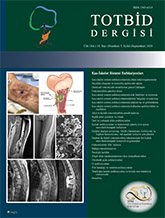
Hand infections are common and associated with significant morbidities. They are frequently observed in young adults, related with occupational injuries or older people with immune deficiencies caused by diabetes or HIV infection. Staphylococci and streptococci are most commonly responsible in hand infections. Polymicrobial etiology is the leading cause in complicated cases. Recently, methicillin resistant Staphylococcus aureus (MRSA) infections have been on the rise. Working with care and using gloves are the most important measures in prevention from hand infections. Unique anatomic features of the hand profoundly change the clinical course of hand infections. Finger infections like paronychia or felon, superficial or deep abscess of hand, septic arthritis, osteomyelitis and chronic infections of hand are included in the spectrum of hand infection types. Early diagnosis, sample collection and determination of possible microorganisms, early surgical drainage and proper antimicrobial therapy and immobilisation and edema control are essential in management. Empiric antibiotic therapy should be involved in treatment before definitive microorganism is shown. Management of hand infections have become difficult to treat due to increased antibiotic resistance recently. Infections with specific involvement should be kept in mind.